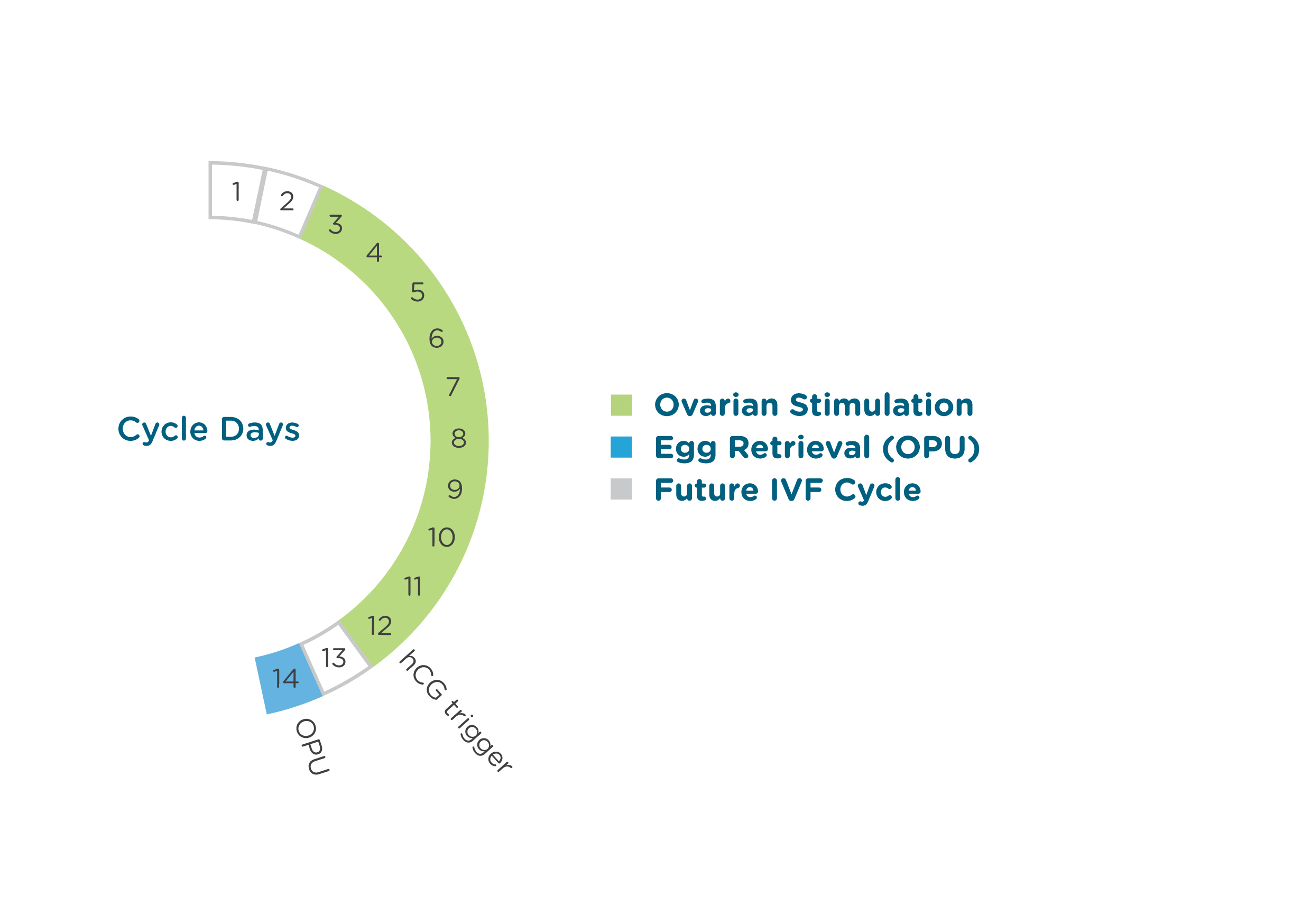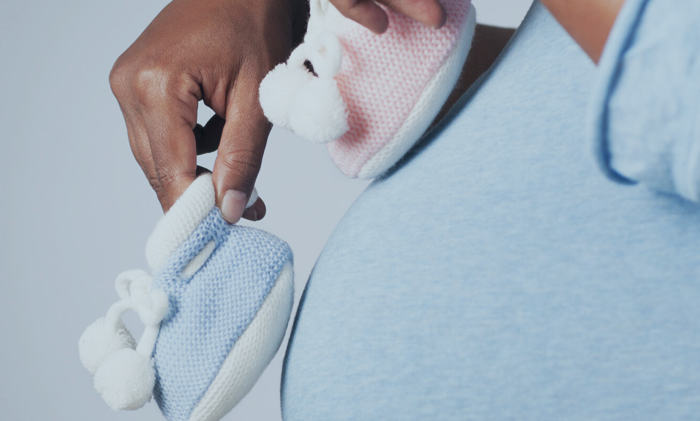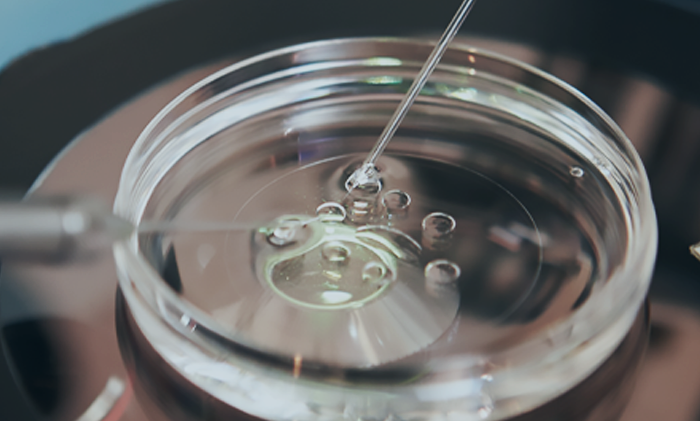


Egg and Sperm Freezing is an effective way for women and men to preserve their fertility. Individuals may want to consider Egg or Sperm Freezing if they are considering delaying parenthood for a later stage in their life or if they are undergoing medical treatment and want to protect their fertility from any negative side effects of medication. Fakih IVF offers Egg and Sperm Freezing in Abu Dhabi and Dubai.
The quality of a woman’s eggs, her ovarian reserve, diminishes with age while the reproductive organs maintain their ability to carry a pregnancy. The decrease in quality is relatively gradual until the age of 35, after which the rate increases. When egg quality decreases, the chance of pregnancy decreases and the risk of miscarriage and genetic abnormality increases. Egg Freezing offers you flexibility in delaying pregnancy for later in life and allows you to take control of your own biological clock.
What Are The Steps Involved In Egg Freezing?
On Day 2 of the Menstrual Cycle, fertility medications are prescribed to stimulate the growth of multiple follicles in the ovaries. Ultrasound scans and blood tests are used to monitor follicular growth and hormone levels. 36 to 40 hours before the schedule Egg Retrieval, an hCG “trigger” shot is given to induce maturation of the eggs within a scheduled timeframe.
Eggs are retrieved using a thin ultrasound-guided needle during a minor procedure under sedation and are then frozen for later use.
 *The above dates are an approximation of an average cycle.
*The above dates are an approximation of an average cycle.
When you are ready for pregnancy, your eggs are thawed and fertilized using ICSI. If you are interested in freezing your eggs, contact Fakih IVF to book an appointment or ask any questions you may have.
Sperm Freezing is an effective way for men to store sperm for future use, particularly if they want to preserve their fertility while receiving any treatment that may damage sperm quality. Men may store their sperm from natural ejaculate, TESA or MicroTESE, even if they have reduced sperm parameters.
What Are The Steps Involved In Sperm Freezing?
For more information on the relationship between Age and Fertility in women, read the below publication by the American Society of Reproductive Medicine in 2012.

Modern technology and medical advancements continue to give couples facing infertility a greater chance of success in fulfilling their dreams of paren...
Read More
Natural Cycle is an option for women who do not respond well to fertility medication or who have poor ovarian reserve. Such women do not produce more ...
Read More
With centers in Abu Dhabi and Dubai and medical partners in Al Ain, Fakih IVF Fertility Center is available to help couples and individuals facing mal...
Read More
Intrauterine Insemination (IUI), also known as Artificial Insemination, may be an option for couples if the wife’s fallopian tubes are patent (no ...
Read More
Fakih IVF Fertility Center has a full-service in-house Genetics Laboratory. — Genetics Laboratory in the UAE capable of performing Genetic Testin...
Read More
With today’s advanced reproductive technologies, identifying the gender of your embryos before pregnancy is possible through IVF and Comprehensive C...
Read More
In Vitro Fertilization (IVF) is the process of collecting eggs from the wife and sperm from the husband and fertilizing them in the Embryology Laborat...
Read More